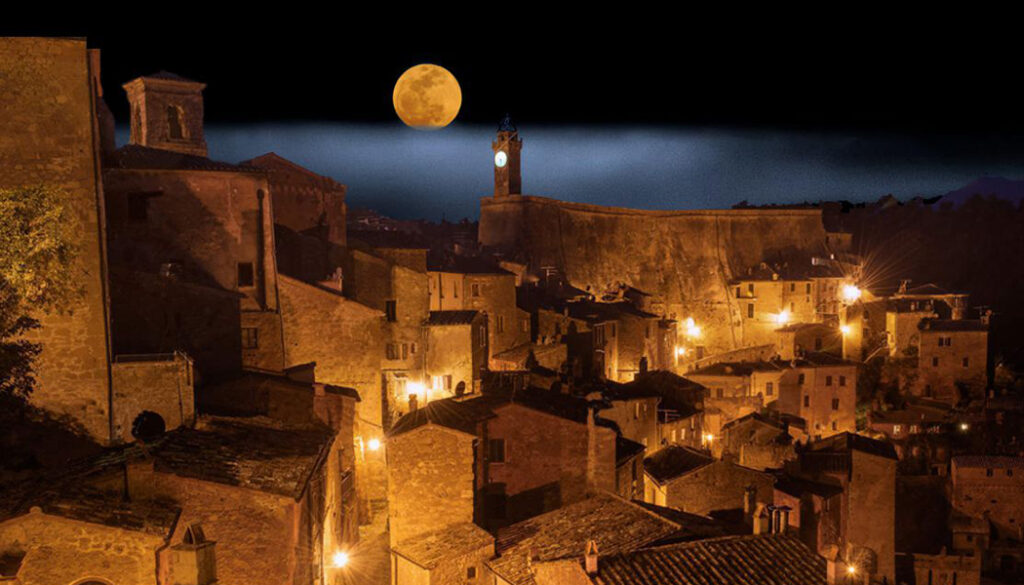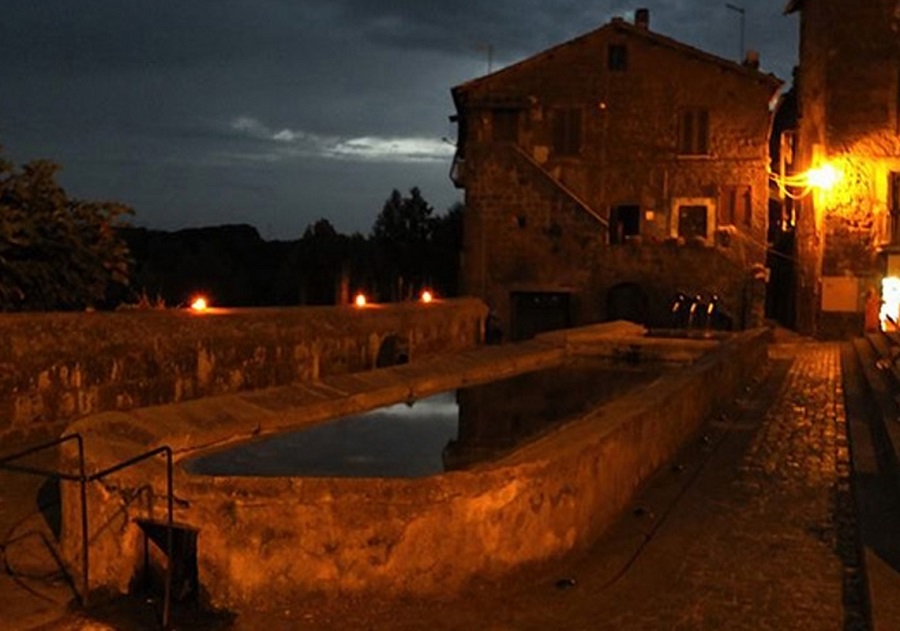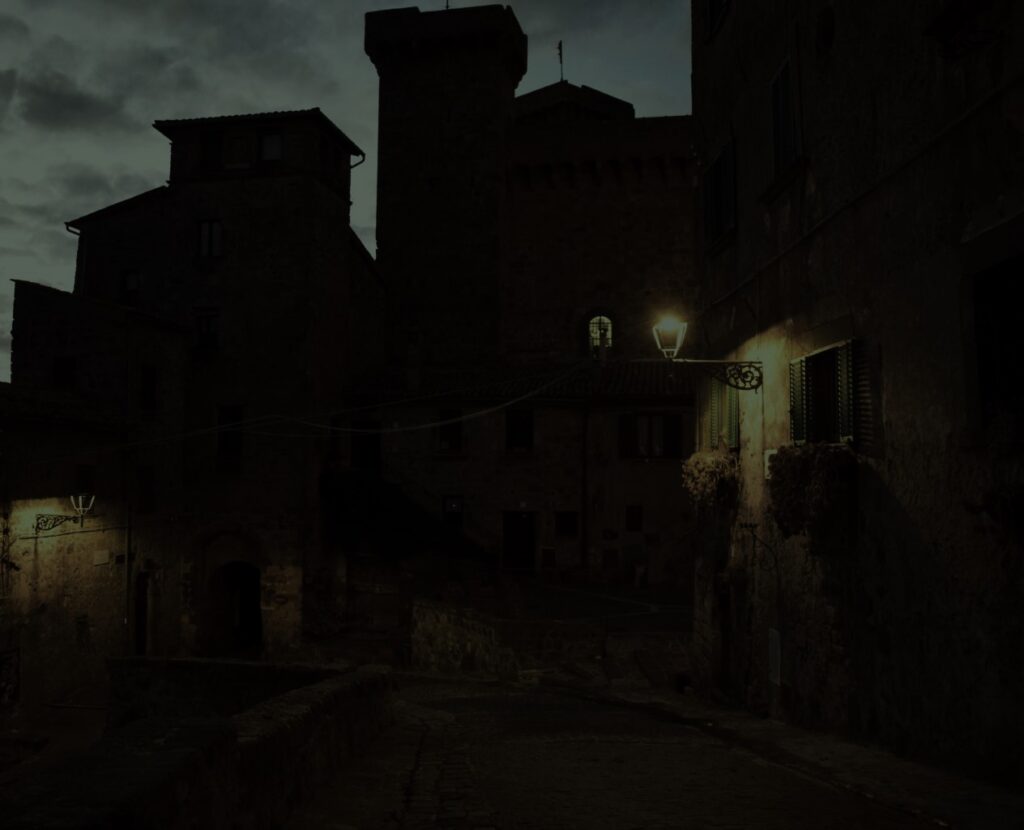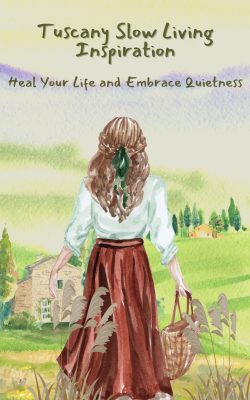The moon stood guard in the sky, occasionally hiding behind passing clouds and observing us with a hint of suspicion from behind one of the castle’s towers. Even today, just as in medieval times, the banners of ancient families still waved proudly.
In the heart of our small Tuscan village, a light mist meandered through the narrow alleyways, rendering the lanterns in front of the few remaining inhabited homes almost invisible. The air carried a scent of wood, which mingled with the distinct aroma of the local tufa stone.
For my father and me, the late November nighttime stroll was a cherished tradition. We took it so seriously that we believed, more or less earnestly, that breaking it would bring bad luck! We would set out after dinner, descending from the hills along the path that led to the village, carrying torches and wrapped up in scarves and woolen hats, like two wanderers in search of adventures!
Love Bolsena and Central Italy?
Subscribe to my substack!

Often, on our daring journey, we’d encounter a fox or an owl. The latter would keep us company with its hooting until we reached the village’s gates, where we’d lose ourselves in the winding streets of that remote village. There, the welcoming committee consisted only of the autumnal mist and a few stray cats.
We walked aimlessly, at times embracing for warmth, listening to the echo of our footsteps on the damp and slippery cobblestone streets. In times long past, the clattering of horse hooves would have filled these streets.
We had no specific destination, no particular purpose. But we enjoyed pausing in front of places steeped in history, like the communal wash-house. There, stories and legends melded with the chatter of women who came to wash their laundry. This was one of the few places where women could go alone. They shared their joys and sorrows, exchanged recipes, sang, laughed, and cried. Most importantly, they passed down true stories, echoing to us from the distant voices of their protagonists.
Whenever we stopped in front of these forgotten places, my father would tell me to close my eyes and listen to the ancient voices. And I did: the noise of carts, animals, a crying child, the gurgling of water, and the jugs being filled, but also the endless arguments of the washerwomen.

Another place we enjoyed pausing in front of was the old workshops and nearly abandoned stores, where not long ago, men worked, sold, and shopped. Just like at the wash-house, arguments were commonplace here.
With a bit of imagination, as my father would say, it was still possible to hear various sounds: the hammering of artisans, the shattering of a mirror, and the negotiations of two men in a jewelry store. If you let yourself get carried away by the moment, you could even smell the freshly baked bread, the lake fish, or the bean soup prepared at the Antica Locanda.
Then there was the barbershop and cobbler’s workshop, both places where we enjoyed lingering. In the cobbler’s workshop, one room was dedicated to repairing shoes, while in the other, the cobbler trimmed beards and cut hair. In front of that weathered wooden gate, I would immerse myself in the atmosphere, imagining the bustling salon filled with people, illuminated by oil lamps, and furnished with old armchairs.

And so, shivering in the cold, watching the steam escape our mouths with every breath, we would stand in silence, hearing the murmurs of ghosts from times gone by. Perhaps they were content that someone came to visit them now and then, bringing their memories and stories from the past.
From The Heart Of Italy My Gift For You (Free Download)

Experience the magic of Tuscany in your everyday life with my FREE PDF guide:
“Tuscany Slow Living Inspiration: Heal Your Life and Embrace Quietness“
This printable digital book is designed to help people organize their daily lives while embracing the slow living philosophy.
It includes prompts for journaling, Tuscan quotes, mindfulness exercises, and informational sections about Tuscan culture, cuisine, and traditions…


